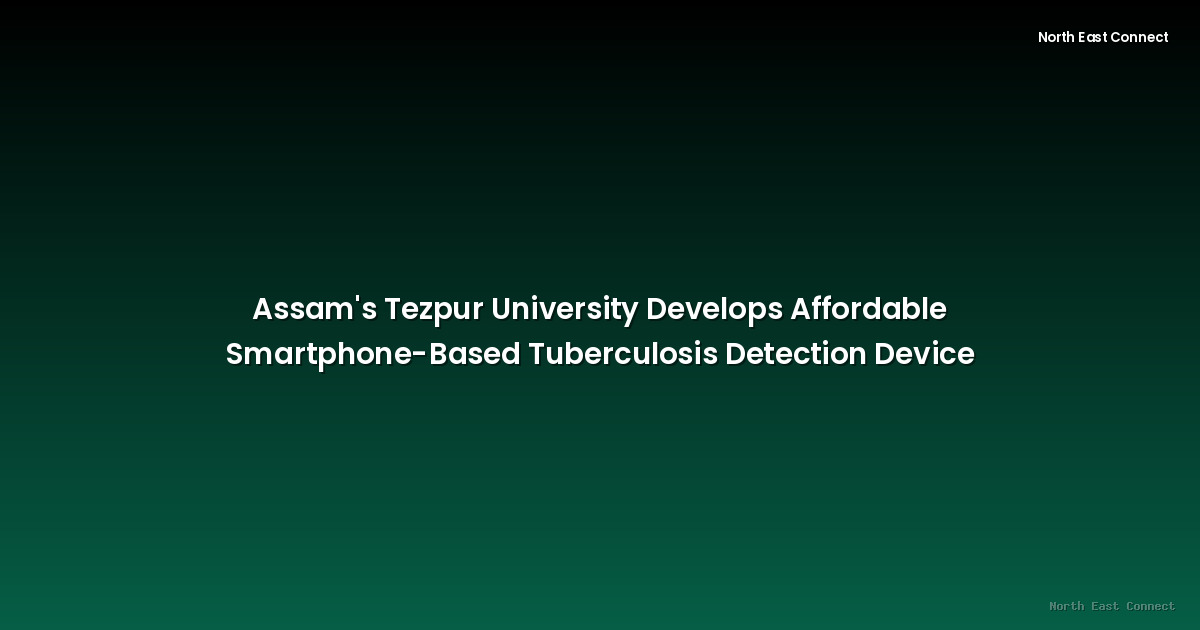2025-08-12 · News
Tuberculosis (TB) remains a significant public health concern, particularly in resource-limited settings. Early and accurate diagnosis is crucial for effective treatment and preventing the spread of the disease. Researchers at Tezpur University in Assam, India, have made a noteworthy contribution to addressing this challenge with the development of a novel, low-cost tuberculosis detection device that integrates with readily available smartphones.
This innovative device represents a significant advancement in accessible TB diagnostics. Traditional methods often involve expensive equipment and specialized laboratory settings, creating significant barriers to timely diagnosis, especially in rural or underserved communities. The Tezpur University device bypasses many of these obstacles, leveraging the ubiquitous nature of smartphones to provide a portable and cost-effective solution.
The technology's underlying mechanism remains undisclosed in currently available information, but the premise hinges on utilizing a smartphone's processing power and camera capabilities in conjunction with an external, relatively inexpensive attachment. This attachment likely interacts with a sample (possibly sputum) and the smartphone's software processes the resulting data to provide a preliminary diagnosis. While specific technical details are limited, the reported low-cost nature suggests the device utilizes readily available and affordable components.
The implications of this development are far-reaching. By reducing the cost and complexity of TB diagnosis, the device has the potential to significantly improve healthcare accessibility, particularly in areas with limited resources and infrastructure. Early detection allows for prompt treatment, preventing the progression of the disease and minimizing its transmission. This is particularly crucial in regions like Northeast India, where TB prevalence might be higher than national averages due to various socio-economic factors.
The project showcases Tezpur University's commitment to addressing critical regional health concerns through technological innovation. The development and subsequent deployment of this device could be a game-changer in the fight against tuberculosis in Assam and potentially across other parts of India and similar regions facing similar challenges.
While the device shows promise, it's important to note that further research and validation are likely needed. Large-scale clinical trials will be crucial to rigorously evaluate the device's accuracy and effectiveness compared to existing diagnostic methods. Potential limitations, including sensitivity and specificity, will need to be thoroughly investigated before widespread adoption. Nevertheless, the initiative demonstrates a significant step forward in the quest for accessible and affordable TB diagnostics.
The success of this project highlights the potential of leveraging readily available technologies to address pressing health challenges. The collaboration between technological innovation and public health needs is crucial for improving healthcare outcomes, especially in resource-constrained environments. Future developments and wider adoption of the device will be closely monitored for its overall impact on TB control and public health in Assam and beyond. The focus now shifts to ensuring the device undergoes the necessary testing and regulatory approvals to allow safe and effective implementation across communities. The long-term goal is broader accessibility and improved TB management through cost-effective diagnostic tools.







